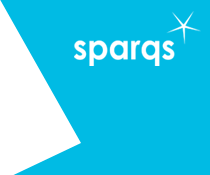In this interview, we talk to Dr Claire Carney PFHEA, Vice Principal (Student Experience) with City of Glasgow College. She has wide experience in education leadership, including previously as Associate Vice Principal Education at the University of the West of Scotland and as Director of QAA Scotland with responsibility for the Enhancement Themes. She has been a higher education quality reviewer and adviser across Europe and beyond, and is a member of sparqs’ Joint Advisory Group.
1. As we look forward to sparqs’ 20th birthday party later this year, can we ask you to reflect back over the past few years? How would you describe student engagement in our sector today, and how different is that from, for example, when you first joined QAA Scotland in 2006?
The progress and depth of student engagement activity has progressed beyond recognition since I joined the QAA in 2006 to lead on the Enhancement Themes. Student engagement in the early days was mostly student representation, but it matured over the years to be more about partnership and engagement. What is considered now as ‘part and parcel’ of student engagement in quality has taken the last twenty years to mature and expand and become part of the fabric of quality arrangements. Early work with the Enhancement Themes moved from having one or possibly two student representatives on Enhancement Theme Committees, to having student memberships from all HEIs and ultimately to student led projects. This evolvement was slow and deliberate, building capacity and expectation and thus quality in our student engagement activity.
2. Having been in leadership roles in both the university and now college sector, how important are the current moves to tertiary quality arrangements and increasing co-operation between the two sectors? And does that provide opportunities for sharing about student engagement?
I am wholly committed and very vocal in my support for a single Tertiary Quality Framework for the Tertiary sector. Having joined the college sector in January 2020, my sense was that the quality arrangements for colleges were more school facing and not reflective of a mature enhancement led approach that exists in most colleges. Colleges, much like HEIs, are amorphous institutions ranging from small to large, specialist to generic, providing educational opportunities up to SCQF level 10. Increasing co-operation across the Tertiary sector is vital as we can learn from each other and break down perceptions of what the other is doing. I have learned so much and have seen what I would consider sector-leading practice from within my own college and, speaking candidly, I would never have imagined such activity to be taking place within a college environment – simply because I had never been exposed to it previously.
Scotland is a small country with a large number of colleges and universities, all there to provide education and pathways for students. It is important that we work together to truly evolve learning pathways, limiting transition ‘issues’ and providing a true tertiary blended system.
It is also important that agencies follow sparqs’ lead and bring together key actors from universities and colleges to share experience and knowledge of student engagement and learning and teaching. The more we share good practice and learn from each other, the more we can make efficiencies and continue to enhance learning and teaching.
3. We have always been proud, as sparqs and a wider sector, of the importance of student engagement in quality at all levels and our globally distinctive approach to developing it. What do your own international experiences at QAA and elsewhere tell you about Scotland’s reputation for engagement? And what lessons can we take in turn from other countries’ approaches?
Over the years, I have been very fortunate to have worked in many countries supporting the development of enhancement strategies and being part of institutional review teams. These roles have been because of the quality enhancement approach and student engagement prevalent in Scotland. During this time, discussions with countries beyond Scotland questioned whether students could be ‘trusted’ to be involved in quality enhancement approaches and students were very much seen as the group being ‘done to’ rather than with. I am glad to say that I have seen that change over the years, but I would still say that Scotland leads the way.
However, I am mindful of an increasingly consumerist and regulatory approach to education, therefore, we need to avoid being complacent and continue to develop, improve and further embed student engagement in all we do, whilst fully embracing the partnership approach.
4. We’re at a time of considerable change in our sector and wider society, and colleges are at the forefront of these conversations. What is your sense of what student engagement might look like in the near future, and how can the voice of students help respond to the challenges that we face in education?
I am very positive for the future of student engagement as the system has grown and matured into one which has it inherently embedded in processes and systems.
What I am less positive about is the current financial and funding crisis, with what feels like students on the one hand and ‘institutions’ on the other. This might serve to undermine much of the diligent legacy work conducted over the last twenty years. The voice of students and the lives they lead need to continually be heard to continue to support an inclusive, questioning and partnership approach. That need has never been greater given the environmental, financial, health and technological challenges being faced currently and into the future.
.
Thanks to Claire for being an interviewee. To suggest a future subject for interview, please contact us.
This interview is part of a series of occasional interviews on our website with student engagement practitioners – both staff and students, and from within Scotland’s university and college sector and beyond. The interviews aim to capture the different perspectives that people have on student engagement in the quality of learning.


